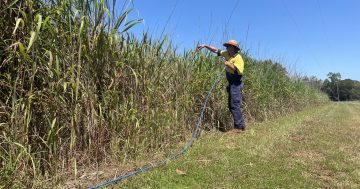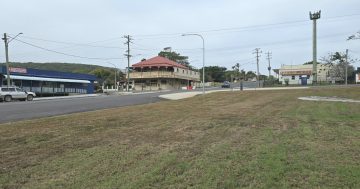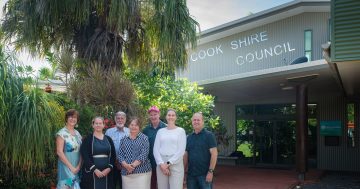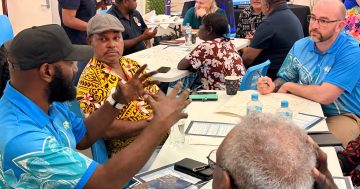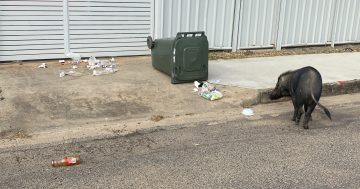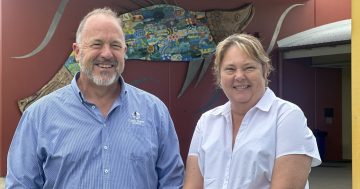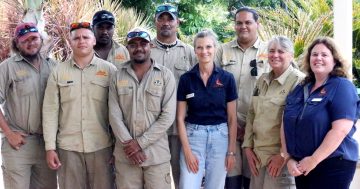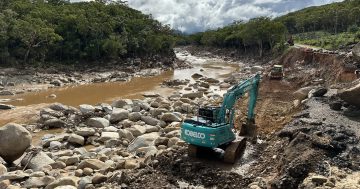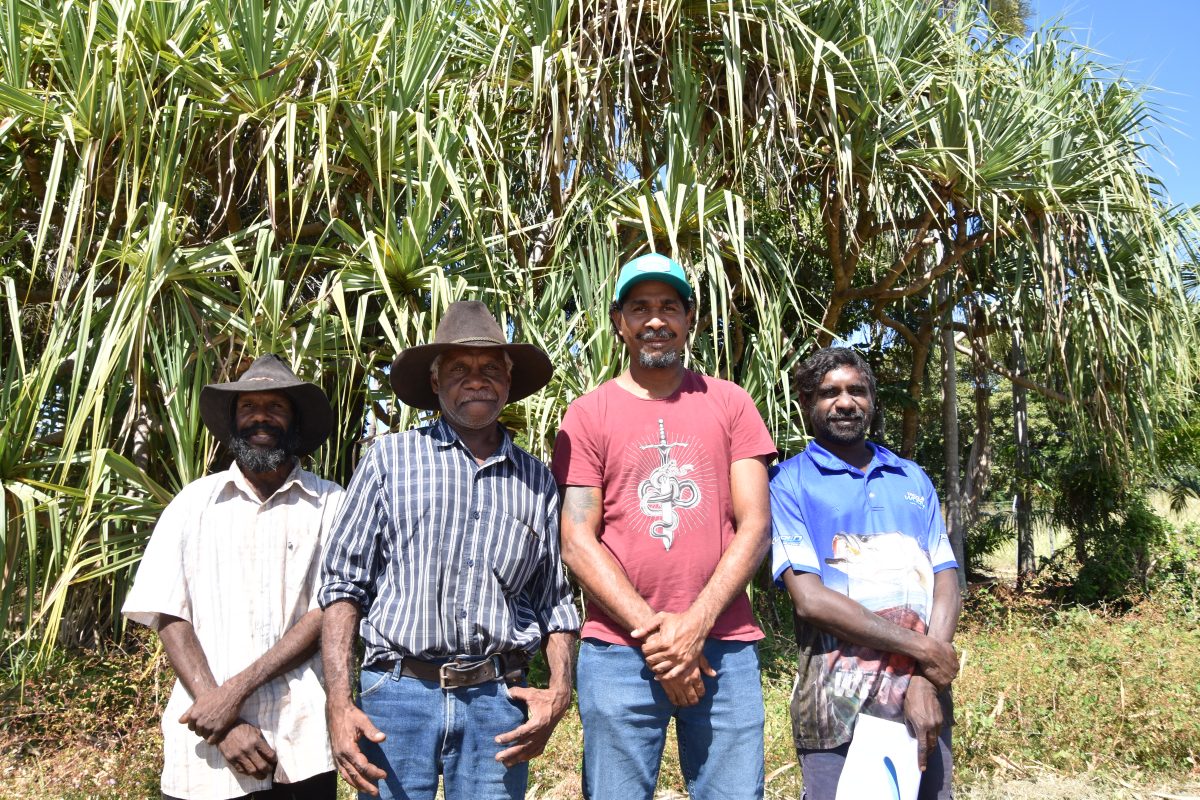
Juunjuwarra Traditional Owners Aaron Yoren, Vernon Yoren, Neil Jacko and Emerson Yoren are working to restore their homelands.
A PARTNERSHIP has been formed between a Traditional Owner group and Cook Shire Council to create a management plan for a popular but neglected camping area.
The Starcke River boat ramp is managed by the council and is on the Juunjuwarra homelands, but for years has been used and abused with illegal camps, makeshift tracks forged through the rainforest, and sensitive dunes and cultural sites trashed.
Traditional Owner Neil Jacko launched the Juunjuwarra Starcke River Catchment Plan in Cooktown on Tuesday, May 30 and said the collaborative management proposal was a first for the region and that the idea could be rolled out in other areas.
“This is about working together and putting our backs behind each other,” Mr Jacko said.
“The rubbish and damage, it’s everybody’s problem and we’re working on a solution together.
“There’s no blame, we aren’t looking at the past, we’re working towards a solution for the future.”
Juunjuwarra Corporation and Cook Shire are working towards an MOU that will see the organisations collaboratively manage the Starcke area, a plan that council CEO Brian Joiner said could be used elsewhere.
“This is a groundbreaking project, working together collaboratively to better manage the land,” Mr Joiner said.
“We’re looking at empowering the Juunjuwarra rangers under council’s local laws to manage the land effectively.
“It is a great opportunity for the rangers to upskill and take personal ownership over management of their country, and it also helps Council as our resources are fairly constrained.
“It’s a fairly complex process, but once the MoU is in place it is a model which could be used by other traditional owner groups, local governments and stakeholders to pool resources and effectively manage country.”
Juunjuwarra mentor Mike Winer said the council was in a hard position with limited resources to manage remote areas like Starcke River, where up to 40 visitors per night camped illegally during the tourist season.
“They are cutting down trees, camping on the dunes, leaving behind toilet waste and rubbish,” Mr Winer said.
“We were quite shocked at the extent of the damage, more than 8km of illegal tracks, 50 illegal campsites, middens driven over, food and medicine trees cut down and huge areas that were rainforest now churned up dunes.”
Mr Winer said a number of organisations had come together on the project, with funding from Cape York Natural Resource Management and the Great Barrier Reef Foundation helping with planning and rehabilitation.
“We will be helping the council enforce the laws that are already in place to protect the land and create that experience for all,” he said.
Mr Winer said Juunjuwarra aimed to have a HipCamp open in July for online bookings of up to eight sites per night, with the beach and dunes off-limits for camping and vehicles.
“While we’re working on finalising the MoU with council, we will have a HipCamp set up so people have somewhere to go,” he said.
“We’re working towards having a really nice day-use area with proper car parks, walking tracks to the beach, signage and toilets, and dedicated camp sites with rubbish bins.
“We want to repair the damage that’s been done and make a better experience for people when they visit in future.”


